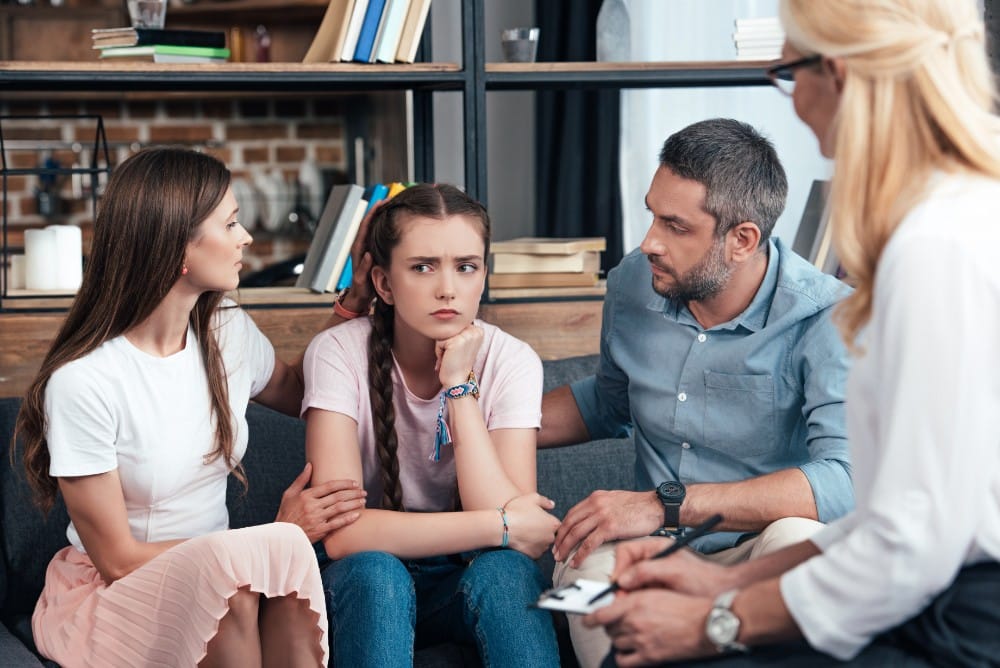Family therapy is only one component of a healthy recovery program for some people. It may not be for everyone, but it is a means of incorporating loved ones into a process that supports their healing as well as that of the loved one. Enabling behaviors and other challenges of working in a family system can be worked on in therapy so everyone understands the role they play in addiction recovery for their loved one. Learn more about how family therapy works and why it helps support growth and healing.
During Treatment
People who are enrolled in treatment programs should have family members involved in supporting their decision. This may mean inviting them into family therapy and treatment alongside them in rehab. Even though parents, siblings, and loved ones may have difficult emotions surrounding the addiction, therapy can be quite helpful in navigating this in a neutral space. Recovery is for the person with addiction, but when it includes the family impacted by addiction it can be critical to the success of the person’s journey of healing. Some things they may do in therapy during treatment:
- Reconnect with loved ones
- Look at the treatment process from the angle of a family’s lens
- Look at enabling behaviors and discuss their role in helping versus hurting a person’s recovery
- Explain behaviors that show up in families with addiction including history, genetics, environment, and other components to better understand where the person is now in their journey
Aftercare Support
Whether or not a family attends the services available, a person is encouraged to seek support from loved ones at home. Communities have counseling and family therapy for support. Loved ones may be encouraged to seek help through twelve-step groups, recovery communities, or other such groups that provide support to many people who are hurting in recovery. The support for families is key as well because they will need additional help, including therapy, to understand their ongoing role in helping a loved one navigate challenges that pop up. Finding hope in recovery may feel challenging when it comes to family situations. Some dynamics may be more toxic than others, which makes it harder for the person with addiction. If toxic family members are holding a person back from feeling successful, it may be time to review the role they have in their lives, especially early on. Mitigating contact and keeping away from direct exposure to anyone who is actively in addiction is always a healthier alternative to feeling triggered. However, there are many ways to navigate difficult family circumstances and by inviting them into the process, maybe they will begin to understand their role better so they can be of more support.
Oceanfront promotes opportunities for healing in recovery with our family treatment program option as we incorporate it into treatment for people with addiction. It is important to look at recovery from all angles and realize it is not just one person impacted, but everyone in the inner circle. We have programs and services available to help you navigate these challenging discussions in recovery. We are located in beautiful Laguna Beach. Call us to find out how we can help you navigate addiction recovery: 888-981-4295







